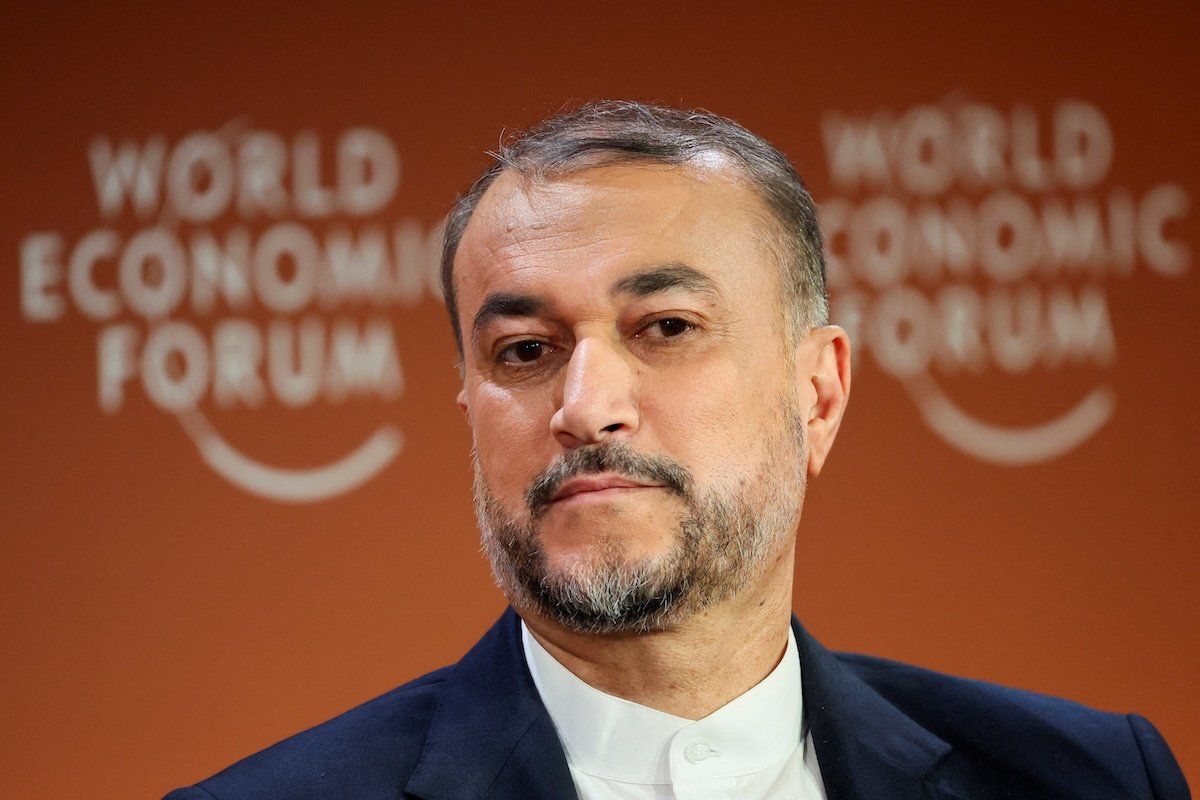The World Economic Forum has always been a big tent when it comes to its attendees. The Russians have participated in large numbers in the past, with oligarchs throwing the wildest parties, replete with caviar and vodka chasers served by throngs of young women calling themselves translators.
That all ended with the invasion of Ukraine – and the US, EU, and Swiss sanctions.
But the tradition of keeping Davos welcome to all-comers has continued with the appearance this week of Iran’s Foreign Minister Hossein Amir-Abdollahian. In an interview on Wednesday, he called Hamas a “liberation movement” while insisting that Iran does not agree with the murder of women and children. (Israel’s President Isaac Herzog had a different interpretation in his session on Thursday, calling Hamas “a platform of terror for Iran.”)
Amir-Abdollahian said that the crisis in the region by the “Axis of Resistance,” including skirmishes in the Red Sea, would stop if there was an end to “the genocide in Gaza.”
His appearance has upset Iranian dissidents, including Marih Alinejad, the Iranian-American journalist who was targeted for assassination in the US two years ago. An Iranian agent visited her home in Brooklyn in July 2022. He was stopped the same day by the New York Police Department and found to have an AK-47 in the trunk of his car. He was later charged, along with two others, for being part of a plot to assassinate Alinejad.
Alinejad – who spoke with Ian Bremmer on GZERO World about being targeted by Iran – took to X, formerly Twitter, this week, pointing out that she was in Davos as a speaker last year.
“This year, the WEF invited the foreign minister of the country who sent gangsters to America to kill me in my house in Brooklyn. Just as the Islamic Republic planned a vicious attack on Israel by its proxy, Hamas, fired missiles at the Kurdistan region of Iraq and plotted with the Houthis to disrupt global shipping. Whose side is the WEF on?”
The answer it seems is … its own. The forum’s prime directive appears to be to ensure the annual gathering in Davos is the preeminent place this side of the UN General Assembly where global decision-makers can interact and form personal relationships, even when they don’t agree.
